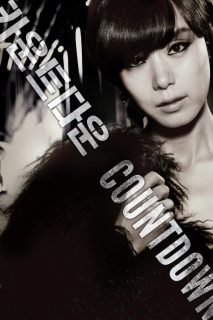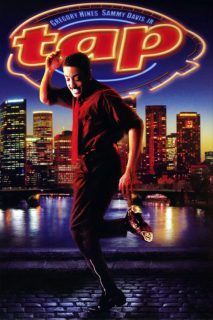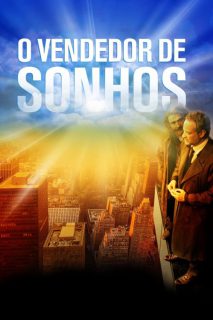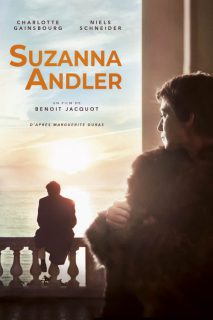
- Year: 1974
- Released: 12 Apr 1974
- Country: United States
- Adwords: Nominated for 3 Oscars. 14 wins & 16 nominations total
- IMDb: https://www.imdb.com/title/tt0071360/
- Rotten Tomatoes: https://www.rottentomatoes.com/m/the_conversation
- Metacritics: https://www.metacritic.com/movie/the-conversation
- Available in: 720p, 1080p,
- Language: English
- MPA Rating: PG
- Genre: Drama, Mystery, Thriller
- Runtime: 113 min
- Writer: Francis Ford Coppola
- Director: Francis Ford Coppola
- Cast: Gene Hackman, John Cazale, Allen Garfield
- Keywords: spy, conspiracy, san francisco, california, paranoia, technology,
 | 7.8/10 |
 | 87/100 |
 | 97% – Critics |
 | 89% – Audience |
The Conversation Storyline
Harry Caul is a devout Catholic and a lover of jazz music who plays his saxophone while listening to his jazz records. He is a San Francisco-based electronic surveillance expert who owns and operates his own small surveillance business. He is renowned within the profession as being the best, one who designs and constructs his own surveillance equipment. He is an intensely private and solitary man in both his personal and professional life, which especially irks Stan, his business associate who often feels shut out of what is happening with their work. This privacy, which includes not letting anyone into his apartment and always telephoning his clients from pay phones is, in part, intended to control what happens around him. His and Stan’s latest job (a difficult one) is to record the private discussion of a young couple meeting in crowded and noisy Union Square. The arrangement with his client, known only to him as “the director”, is to provide the audio recording of the discussion and photographs of the couple directly to him alone in return for payment. Based on circumstances with the director’s assistant, Martin Stett, and what Harry ultimately hears on the recording, Harry believes that the lives of the young couple are in jeopardy. Harry used to be detached from what he recorded, but is now concerned ever since the deaths of three people that were the direct result of a previous audio recording he made for another job. Harry not only has to decide if he will turn the recording over to the director, but also if he will try and save the couple’s lives using information from the recording. As Harry goes on a quest to find out what exactly is happening on this case, he finds himself in the middle of his worst nightmare.
The Conversation Play trailer
The Conversation Photos


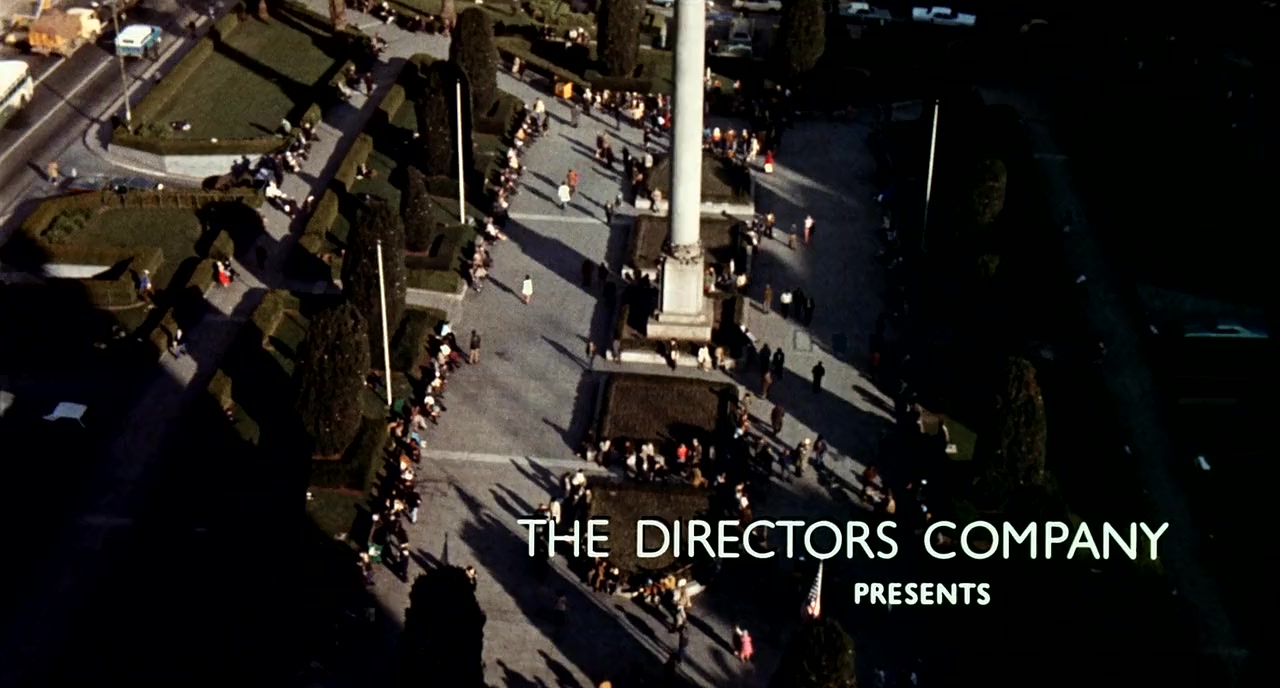
The Conversation Torrents Download
| 720p | bluray | 971.83 MB | magnet:?xt=urn:btih:74F474930FCD095CAE798A86A254DF054DF61F49 | |
| 1080p | bluray | 1.83 GB | magnet:?xt=urn:btih:B9C26BB1280B55930C89915F267DC12A978BB950 |
The Conversation Subtitles Download
| Brazilian Portuguese | subtitle The.Conversation.1974.720p.BluRay.x264. | |
| Chinese | subtitle The.Conversation.1974.720p.BluRay.x264-.cht | |
| English | subtitle The.Conversation.1974.720p.BluRay.x264. | |
| English | subtitle The.Conversation.1974.BluRay.x264- | |
| English | subtitle The.Conversation.1974.720p.BluRay.x264. | |
| English | subtitle The.Conversation.1974.720p.BluRay.x264. | |
| English | subtitle The.Conversation.1974.720p.BluRay.x264. | |
| French | subtitle The.Conversation.1974.720p.BluRay.x264. | |
| Greek | subtitle The.Conversation.1974.720p.BluRay.x264. | |
| Spanish | subtitle The.Conversation.1974.720p.BluRay.x264. |
The Conversation Movie Reviews
Through a semi-permeable membrane, darkly.
SPOILERS.
Coppola made this, a personal movie, after the rip-roaring commercial and critical success of “The Godfather.” And it’s a good one. Whereas “The Godfather” was a splashy violent well-done gangster movie dealing with power and sex, and persuading us to sympathize with a family at least as murderous as that in “The Texas Chainsaw Massacre,” this one has to do with something else entirely. It’s not about that old theme of illusion vs. reality. Nobody plays, say, Jack the Ripper in a stage play and then begins to butcher women on the streets. It has to do, rather, with the interpretation of reality (whatever that is), which is an issue of a different color.
Briefly, Harry Caul (Hackman) is hired by “the director,” who seems to be a rich and powerful executive, to spy on a young woman and the guy she’s seeing (Cindy Williams and Frederick Forrest). He’s the best surveillance technician on the West Coast and he does an ace job of capturing them on film and audiotape while they wander around Union Square in downtown San Francisco. Harry puts the pieces together and suspects the Director plans to murder them. Well, this isn’t Harry’s first time at bat here. Back in New York, doing his usual dispassionately expert job of spying, he was responsible for the deaths of a man, his wife, and his child, the incident that drove him to The City. He’s a very secretive guy, Harry, and minds his own business, but he’s not about to let THAT happen again. When he tried to withhold his tapes from The Director, the tapes are stolen. And when he tries to interfere further a murder does in fact take place. But Harry had it backwards. He interpreted everything on his tapes as signs that the young couple were in danger from The Director, whereas in fact the couple had been planning to murder him for the inheritance, and they succeed too.
You can never truly be sure that your interpretations of what’s going on are the correct ones because, as Kant argued, our interpretations are limited by our perceptual apparatus, just as Harry’s interpretations were limited to what he could learn from four unidirectional microphones, a camera, and a hidden portable mike attached to a receiver. And what all this electronic junk told him was real enough but so ambiguous that its meaning could be twisted one way or another.
The movie is rife with symbolism that I’m not sure I’m getting because it too is ambiguous. Harry is as secretive as anyone can be without being frankly paranoid. Nobody knows his home phone number. His girlfriend, who deserts him, doesn’t know his birthday or his age. A “cawl” is the thin layer of white fat that covers and conceals a piece of meat such as a leg of lamb. But Harry’s raincoat is translucent, one of those ugly plastic ones you can pretty much see through. And he wears prominent glasses so his sight can’t be what it used to be. And, after all, an envious competitor in the bugging business does manage to plant a hidden mike on Harry and record a private conversation. And somebody does get Harry’s home phone, calls him up and tells him, “We’re watching you.” (This leads to Harry’s tearing his whole apartment apart in a futile search for the hidden mike, and leaves him playing a desolate tenor sax while sitting alone on the floor.) Harry has no family. His assistant, John Cazale, is a little too inquisitive and is fired. Someone describes Harry as “anonymous and lonely.” But he’s neither anonymous nor lonely. God and “The Director” know who he is, where he lives, and what he does. And everywhere Harry goes he is now accompanied by his guilty conscience. Oh, Harry’s got a lot of company. Or, as he tells his new fake girlfriend while listening to the tapes, “It’s no ordinary conversation. It makes me feel — something.”
There aren’t too many weaknesses. There’s a murky dream sequence in which Harry describes his childhood paralysis, but it doesn’t have too much to do with the person we know as an adult. Cazale is professional and sympathetic. Allan Garfield is a standout in a mostly comic role as Hackman’s jealous rival, a blustery showman who pulls jokes on everyone including himself. The way he uses his blonde assistant in a tiny dress to help him display his wares at a buggery convention is hilarious. He’s like an on-stage magician cracking jokes while he stuffs the doves up his sleeve. The party scene reminds me of “La Dolce Vita” when the party-goers explore the ancient castle. People inhabit vast empty echoing spaces. Most of the time they are blocked from one another by iron gratings or hanging sheets of plastic. They whisper intimacies to fantasies.
The score is fine. Carmine Coppola uses old melodies behind some of the scenes, and a tinkling puzzling piano statement behind most of the incidents. Sensibly the screen is left silent except for natural noises when Harry looks into the scene of the murder he thinks he witnessed.
You know, sometimes it’s possible to read too much into something, to see Gestalts where there be no Gestalts. I don’t know if I’m making something out of nothing, but is it a coincidence that Harry’s birthday falls on the same day he develops a conscience? Or that on the same day, the Director’s assistant offers him “Christmas cookies”? Is it pure chance that the repetitive song “Red Red Robin” contains the line, “Still I listen for hours and hours”? That the assistant’s name, Stett, means “leave it alone” in Latin?
There’s much more to be said about this film but I don’t want to run out of space so I’ll simply recommend seeing it. In its own quiet way it’s a far more provocative movie than “The Godfather.”
Sylistically, it’s hard to imagine Copolla making this film between his “Godfather” and “Godfather II”.
Two of the greatest films of the 1970s would have to be Francis Ford Coppola’s “The Godfather” and “The Godfather: Part II”. Both films are brilliantly made, amazingly polished and are considered by many to be classics. A much lesser-known film by Coppola came out between them, “The Conversation”. However, despite being a much smaller sort of film, it has gained a cult-like following–and many folks think it’s among the best films of the 1970s as well. It’s as if they see it as an ‘undiscovered’ film by Coppolla–one the public never really embraced like these other much more famous films. Well, after seeing it, I did appreciate it and am glad I saw it–but I also think the word classic is not one I’d associate with the film. It’s good…but not much more.
The film stars Gene Hackman as a slimy private investigator who specializes in providing surveillance for his customers. In other words, he uses bugs to eavesdrop on others and the morality of this hasn’t so far been a major issue for him. However, in a current case, he is having some misgivings. After all, the young couple who he’s listening to with his high tech devices seem like nice people. And, he starts to worry about HOW this information might be used or misused–since in another case, his information he gathered actually led to someone being killed.
This sort of topic isn’t at all surprising for 1974. Think about it–this came out around the same time that the Watergate affair came to light. I am sure that this has something to do with why the film has a huge fan base. However, despite the timely subject matter and an interesting plot, the film could have been a lot better for me. It had a lot of slow points–and I felt my attention waning many times– much of it because the acting was so restrained (almost zombie-like). It also had a lot of portions that made you wonder if what you were seeing was real or it it was in the main character’s imagination–something that didn’t seem to work for me. Still, it’s a highly inventive film and is worth your time–just make sure you can stay awake and focused–ultimately it is worth it.
Excellent
I am not sure whether this is Coppola’s best work, but The Conversation is a wonderful film. Yes it is slow, but it is also gripping and intelligent and effortlessly done in terms of acting and directing. The film looks wonderful, typical Coppola really, wonderful cinematography and beautiful(yet gritty) sceneries. The music is superb, and very memorable, it is actually one of my favourite scores in a Coppola movie along with The Godfather and Dracula. The script is brilliantly written, the story is ceaselessly compelling and the direction is fabulous. The acting is great across as the board, but Gene Hackman and John Cazale are superb and carry the film splendidly. In conclusion, excellent film. 9/10 Bethany Cox
